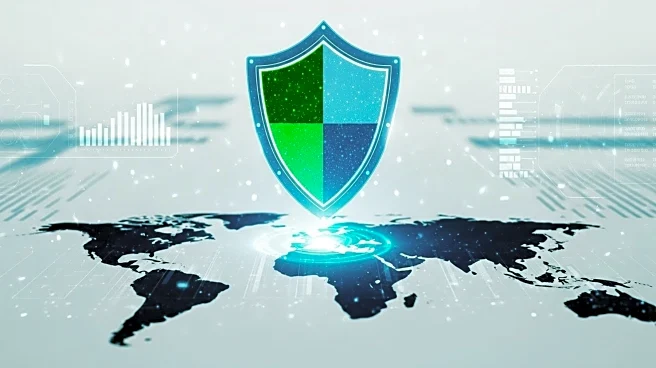What is the story about?
What's Happening?
Australia is intensifying its efforts to build cyber resilience in response to escalating global cyber threats. The country's federal agencies are at the forefront of this digital battlefield, facing a cybercrime economy that rivals the world's third-largest GDP. The Australian government has launched a comprehensive Cyber Security Strategy for 2023-2030, backed by significant funding, to enhance national resilience. This strategy includes the establishment of the National Office of Cyber Security and the implementation of stringent measures under the Protective Security Policy Framework (PSPF).
Why It's Important?
The increasing sophistication and frequency of cyber-attacks pose a significant threat to national security and economic stability. Australia's proactive approach to cybersecurity reflects a broader recognition that cyber resilience is crucial for protecting critical infrastructure and maintaining public trust. The government's investment in cybersecurity not only aims to safeguard national interests but also sets a precedent for other nations facing similar challenges. By prioritizing cyber resilience, Australia is positioning itself as a leader in the global fight against cybercrime.
What's Next?
As cyber threats continue to evolve, Australia is expected to further enhance its cybersecurity measures. This includes adopting advanced technologies such as AI governance and quantum-resistant cryptography, as well as fostering collaboration between government and industry. The shift towards a zero-trust security model and the integration of Secure Access Service Edge (SASE) models will be critical in adapting to the changing threat landscape. Additionally, the emphasis on local partnerships and threat-sharing will play a vital role in strengthening national cyber defenses.
Beyond the Headlines
The cultural shift towards viewing cybersecurity as a foundational element of national resilience highlights the changing nature of modern warfare. As cyber threats become more pervasive, the line between traditional and digital security continues to blur. This transformation requires a reevaluation of existing security frameworks and a commitment to continuous innovation in cybersecurity practices. The ethical considerations of data privacy and the role of government in regulating cyber activities also warrant ongoing discussion.


















